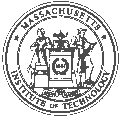
O N THE
P HARMACEUTICAL
I NDUSTRY
MIT Sloan School of Management
Cambridge, Massachusetts
 |
P ROGRAM
O N THE P HARMACEUTICAL I NDUSTRY MIT Sloan School of Management Cambridge, Massachusetts |
|
|
Sarah C. Stallings, Whitney P. Witt, William H. Crown, Stan N. Finkelstein, Arthur J. Hiller & Anthony J. Sinskey. August 2003.
Pharmacogenomics
and personalized medicine promise to improve health care for chronically ill
patients by increasing drug effectiveness and minimizing side effects of drug
therapy. There may also be substantial savings realized by eliminating
costs associated with failed treatment. Since these issues are not
adequately explored across disease areas, the overall economic impact of
personalized medicine remains uncertain. Using asthma as illustration,
this paper describes a new framework for analyzing the potential value of using
a pharmacogenomic diagnostic test in clinical practice.
Margaret K. Kyle. January 2002.
The diffusion rate for new, patented technologies depends on the strategies implemented by innovators for entry into market segments. This paper examines the determinants of such entry, employing an international panel dataset on the pharmaceutical industry. A range of econometric models for a firm's decision to launch a new pharmaceutical product in 21 OECD countries is estimated, with five main results. First, the likelihood of entry is increasing in the population of a country, but at a decreasing rate, and products are less likely to be launched in countries that regulate drug prices. Second, competition matters: one additional drug in a market reduces the probability of another's entry by about 30%. Third, firm characteristics have a substantial impact on entry. The advantage to being a domestic firm is particularly strong. Fourth, drugs that compete in multiple therapeutic classes, that have been recently developed, and that are widely referenced in the scientific literature are more likely to enter a market. Finally, country-specific effects remain. Certain firm and product characteristics have greater salience in some countries than in others, and the effect of competition also differs. The results suggest that the interaction between the innovating firm, drug, and target country is a critical component of profitability, and that regulations may not affect firms and products uniformly. In other words, even in an industry with the potential for ubiquitous licensing, the specific match quality between the innovating firm and idiosyncratic market conditions remains an important determinant of entry.
Pierre Azoulay. October 2001.
Since the mid-1980's, pharmaceutical firms have partly contracted out the operational aspects of clinical trials to Contract Research Organizations (CROs). Using detailed project-level data complemented by in-depth interviews at six pharmaceutical and biotechnology firms, I document patterns consistent with two existing theories of outsourcing. In accordance with neoclassical theories of adjustment costs, outsourcing intensity is sensitive to surprises in the demand for clinical trial services. In accordance with the predictions of transaction-costs economics, knowledge-intensive projects are more likely to be assigned to internal teams, while data-intensive projects are more likely to be outsourced. In addition, a project of a given degree of complexity is more likely to be outsourced when the firm's overall portfolio is more skewed towards knowledge-intensive projects. Combined with qualitative evidence suggesting the potential importance of performance spillovers across projects, this last econometric result draws attention to the perils of taking a single transaction as the unit of analysis when explaining shifts in firm boundaries. The paper thereby provides a first step towards a "portfolio approach" to transaction-costs economics.
Pierre Azoulay. September 2001.
I investigate how difference sources of information influence the diffusion of pharmaceutical innovations. In prescription-drug markets, both advertising and scientific information stemming from clinical trials can affect physicians' prescription choices. Using novel indices of clinical-research output, I find that both marketing and scientific evidence directly influence the diffusion process in the anti-ulcer drug market, with marketing having a more pronounced impact. I also find evidence that clinical outputs are important drivers of firms' marketing efforts, affecting sales indirectly. Taken together, the direct and indirect effect of science on demand imply strong private incentives for clinical research. I conclude that product-market competition in the pharmaceutical industry is shaped both by advertising rivalries and scientific rivalries. Moreover, drug advertising may perform an important informative function.
POPI Working Paper Abstracts: # 1-92 thru 20-94
POPI Working Paper Abstracts: # 21-94 thru 40-97
POPI Working Paper Abstracts: # 41-97 thru 60-01
POPI Working Paper Abstracts: # 61-01 thru 64-03
For more information, comments, or suggestions contact
popi-www@mit.edu
 |
MIT
Sloan School of Management |